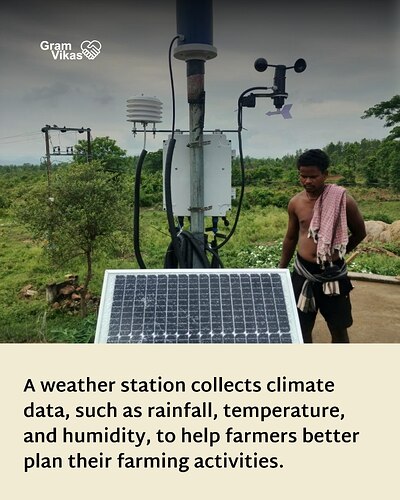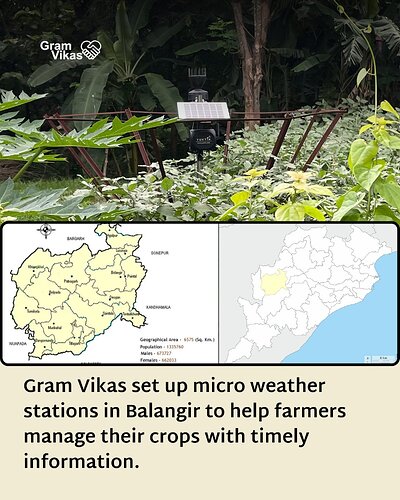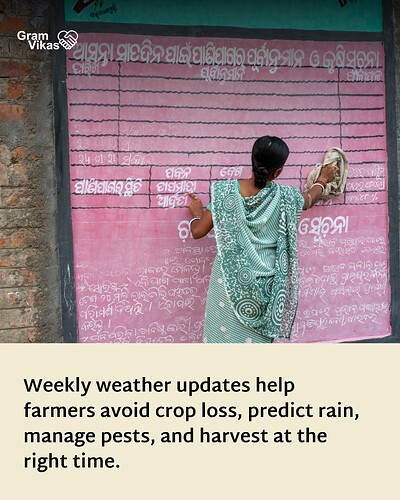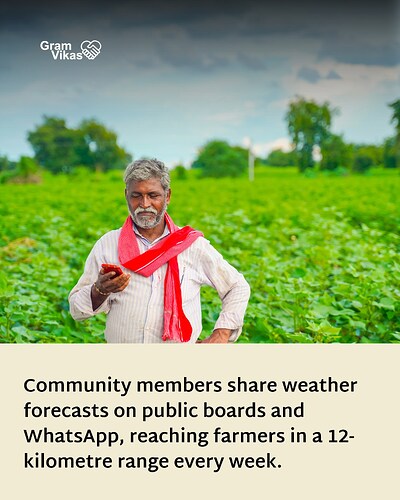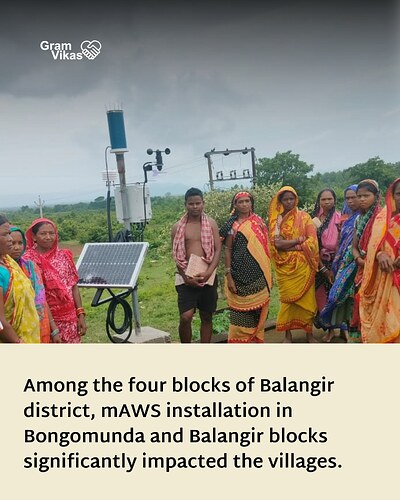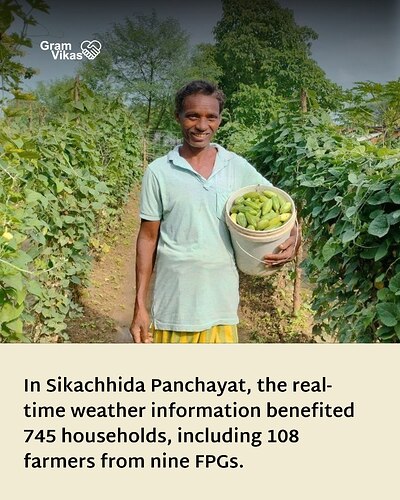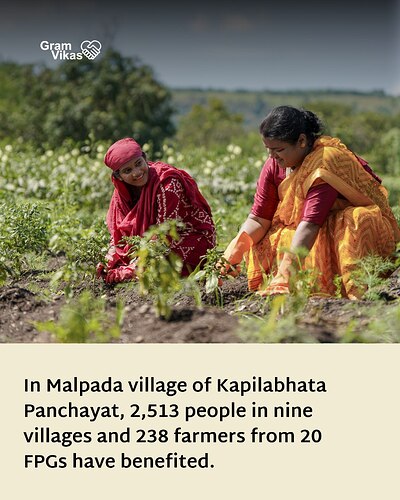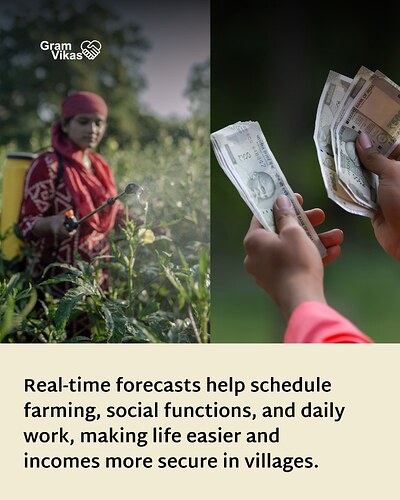#smartfarming | Changing weather has become a big challenge in Odisha’s Balangir district, where nearly 80% of people depend on farming. Unseasonal rains, dry spells, and rising temperatures have made it harder for small and marginal farmers to protect their crops and plan their work.
To help them cope, Gram Vikas set up micro-Automatic Weather Stations (mAWS) in remote villages. These stations provide weekly weather forecasts—including rainfall, humidity, wind, and soil moisture—to farmers within a 6-kilometre radius.
Local community cadres share this vital information through public weatherboards and WhatsApp groups.
Thanks to timely forecasts, farmers now know when to harvest their onions before the rains spoil them, or how to avoid pest outbreaks. Crop losses have reduced, incomes are improving, and planning day-to-day farm and even household activities has become easier.
For farmers like Babulal and Lakshmikanta in Malpada village, this timely information isn’t just data, it’s a lifeline. Real-time weather updates are helping build resilience and a more secure future for rural communities.
Curious about how technology is strengthening climate resilience in rural Odisha?
Discover how Micro Weather Stations are helping our partner communities make smarter farming decisions and reduce climate-related risks.
